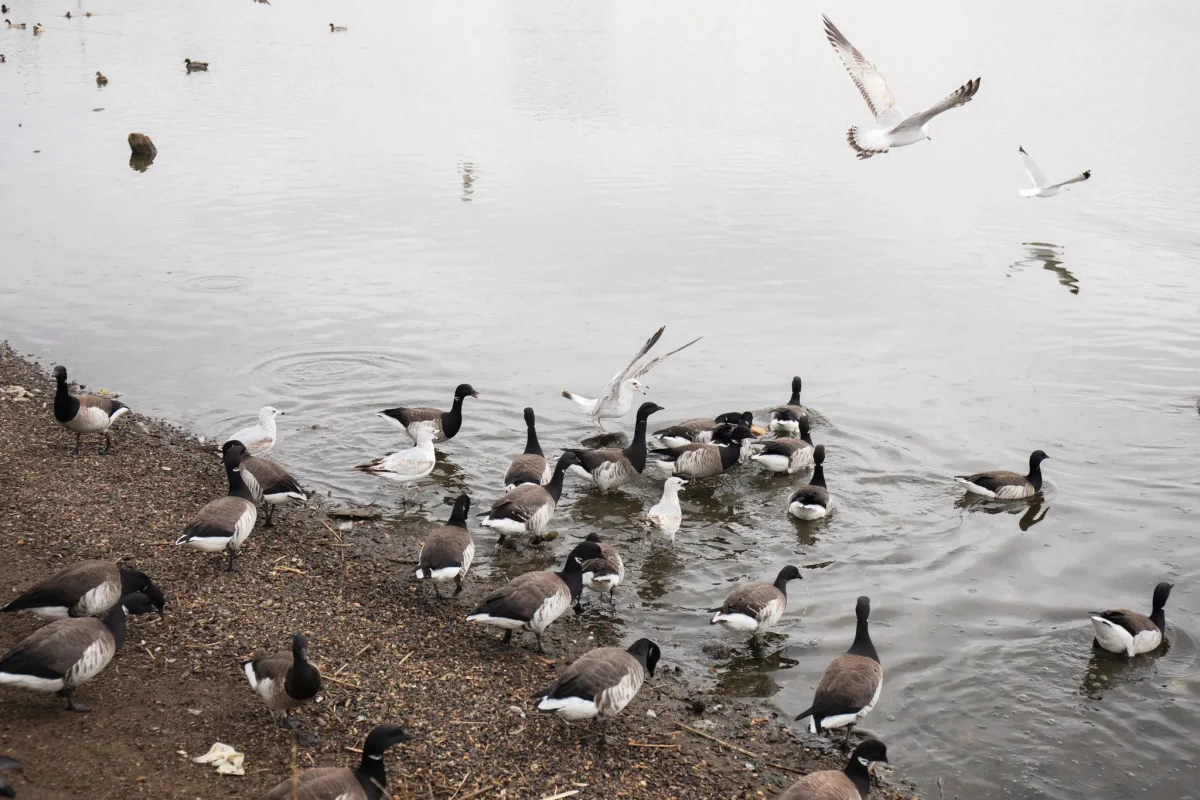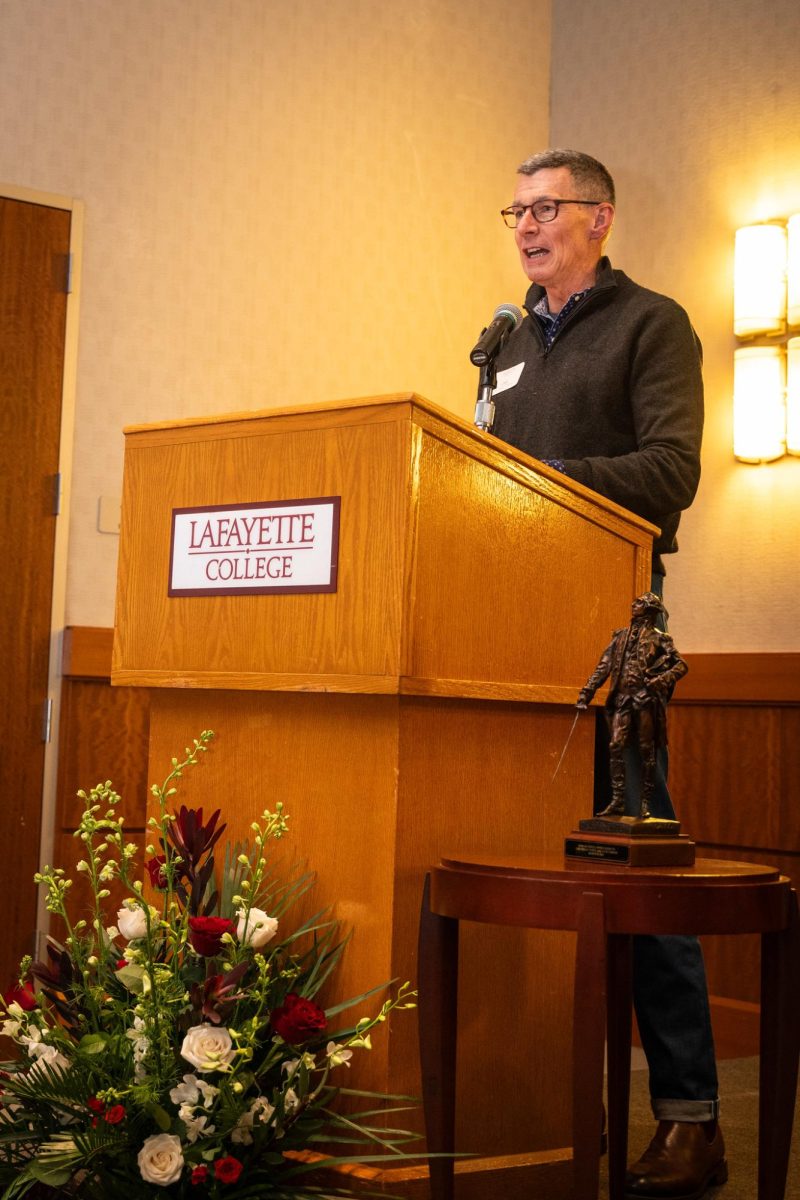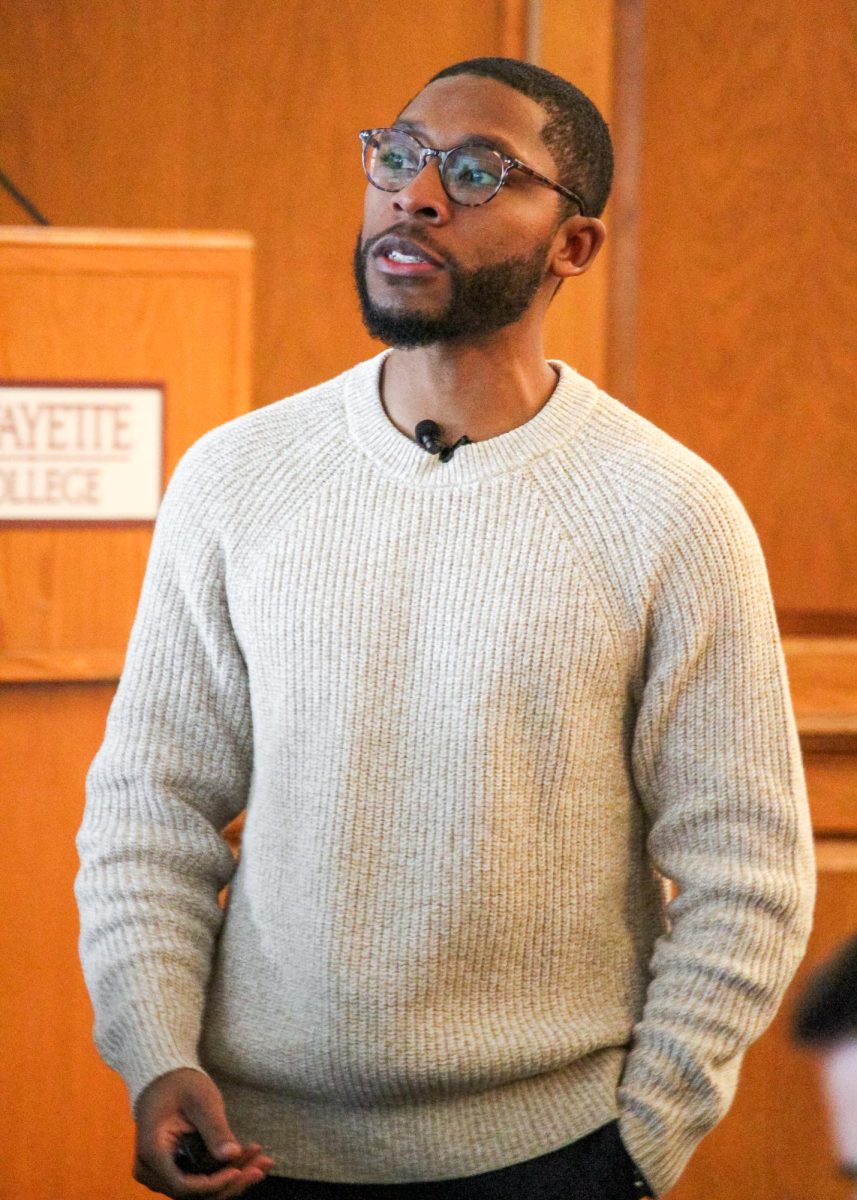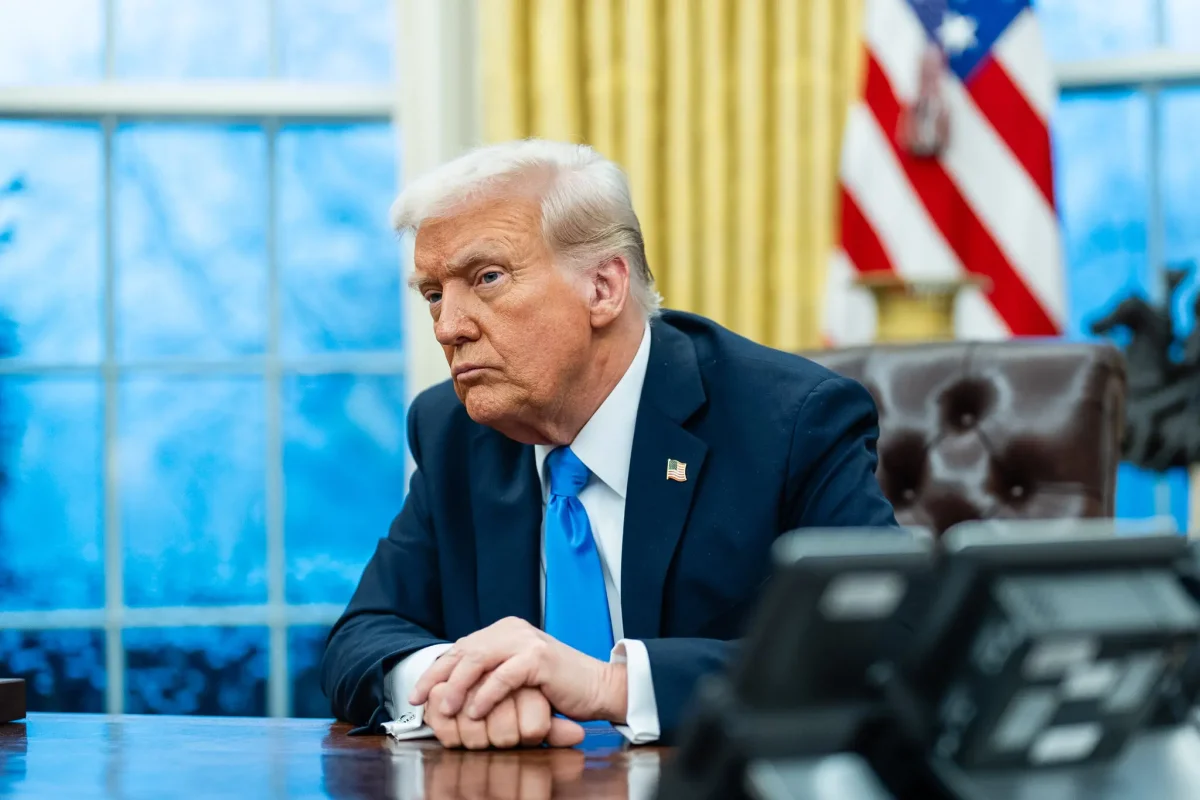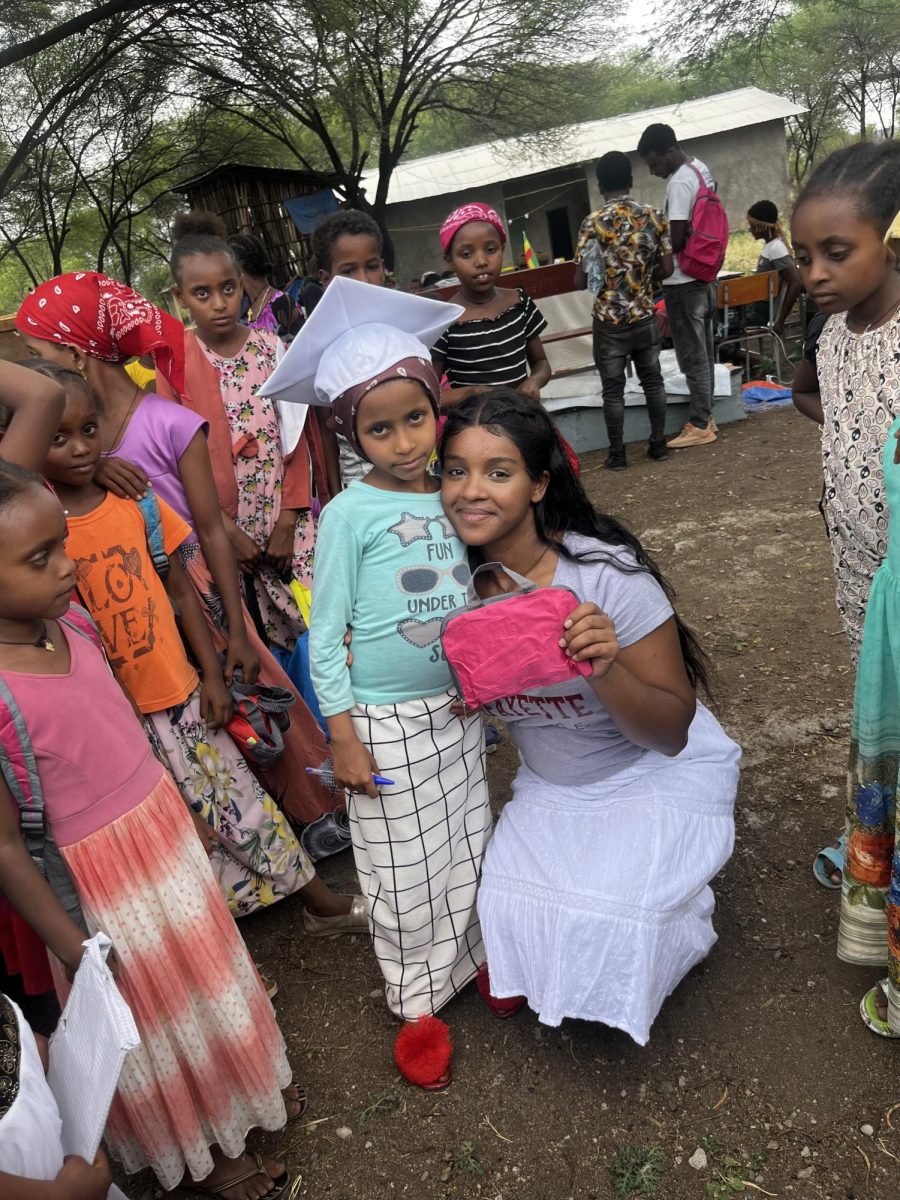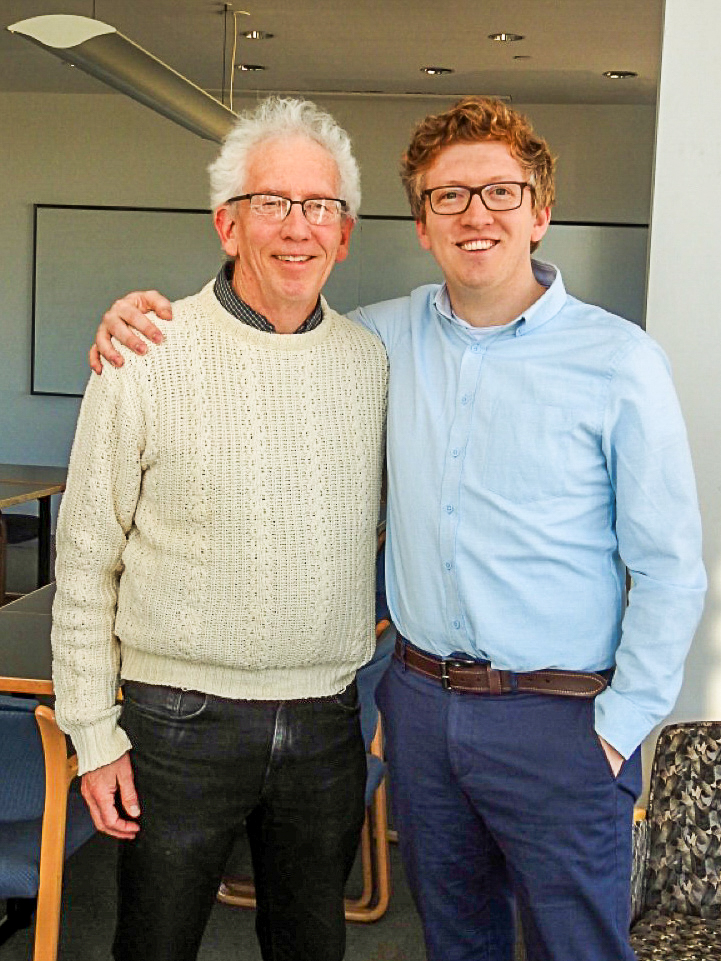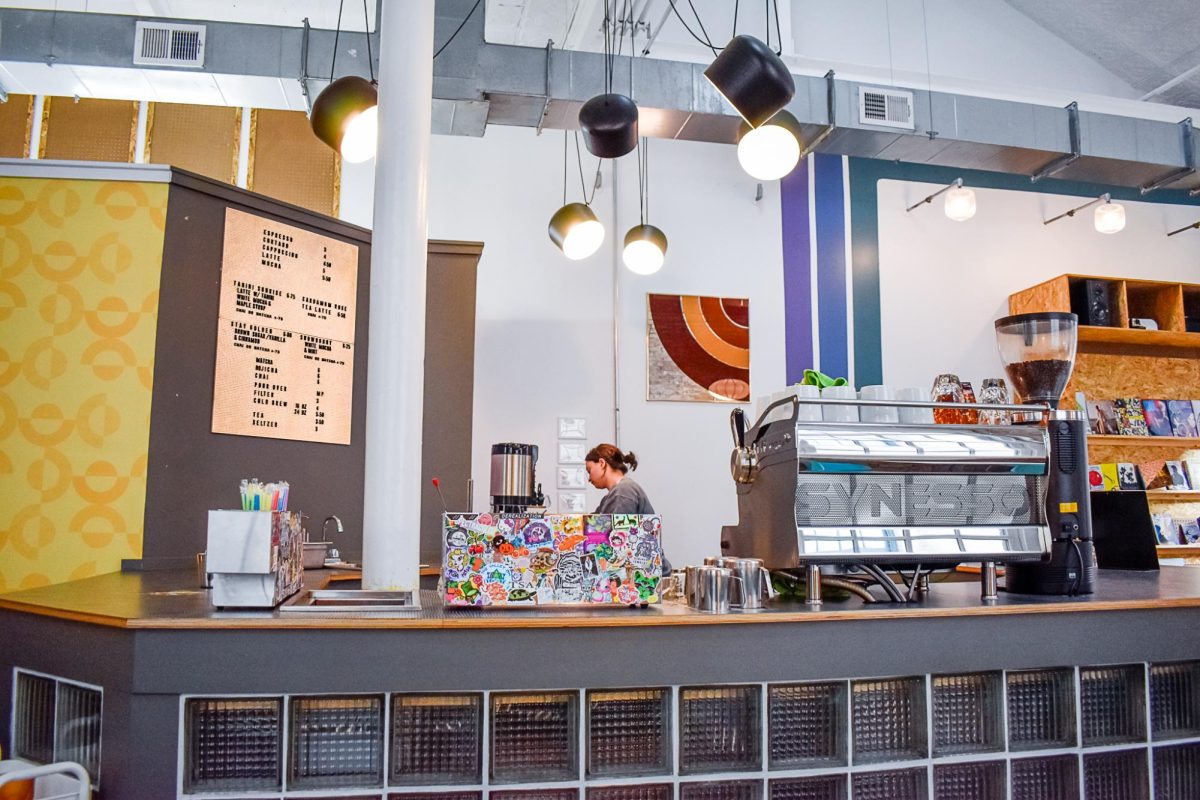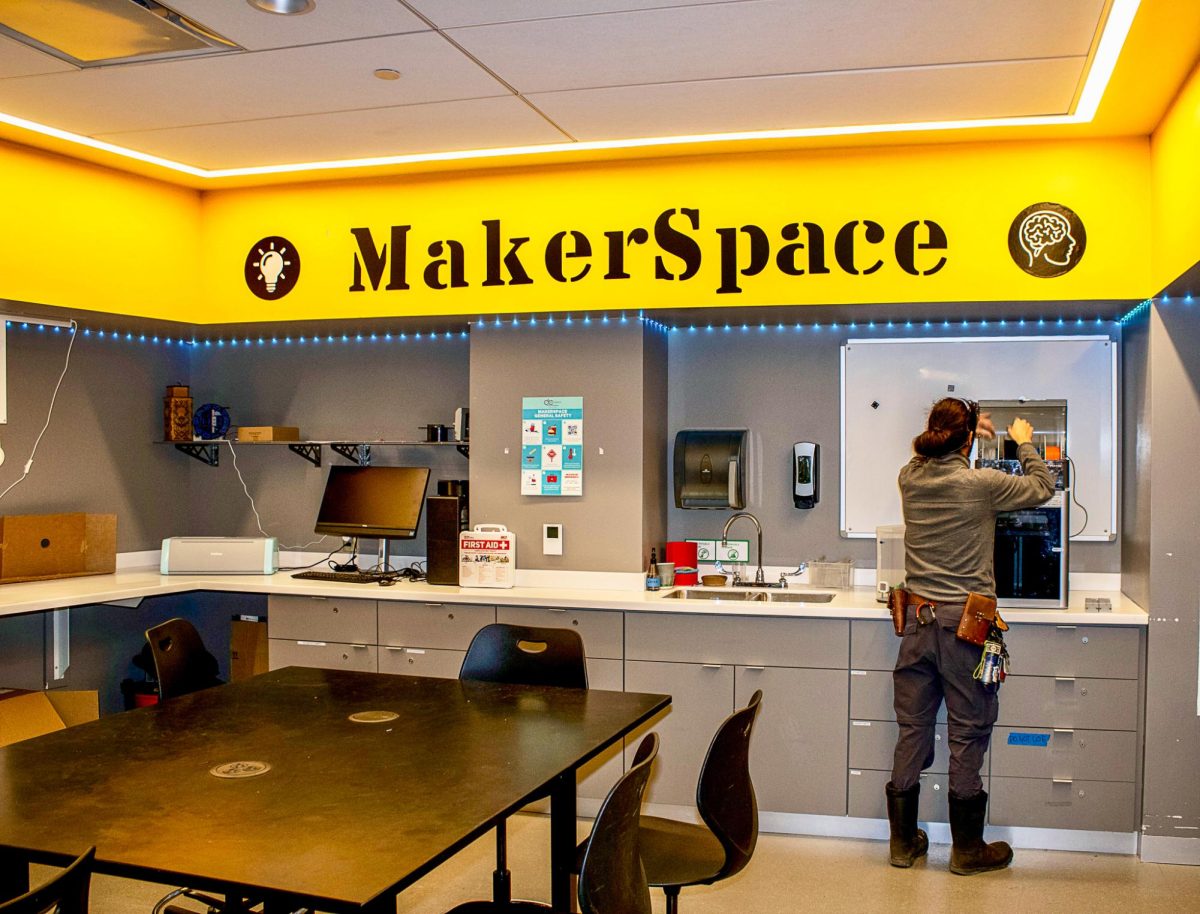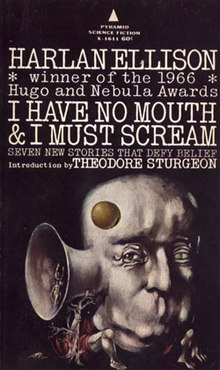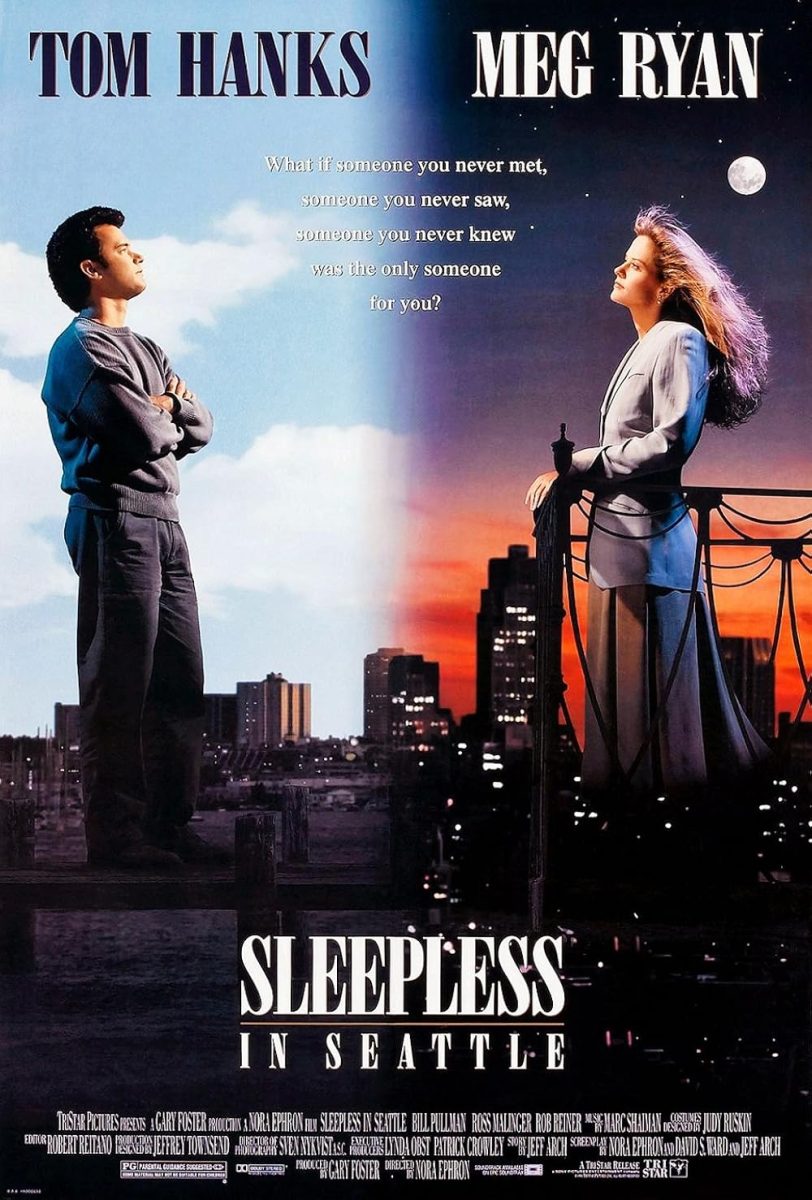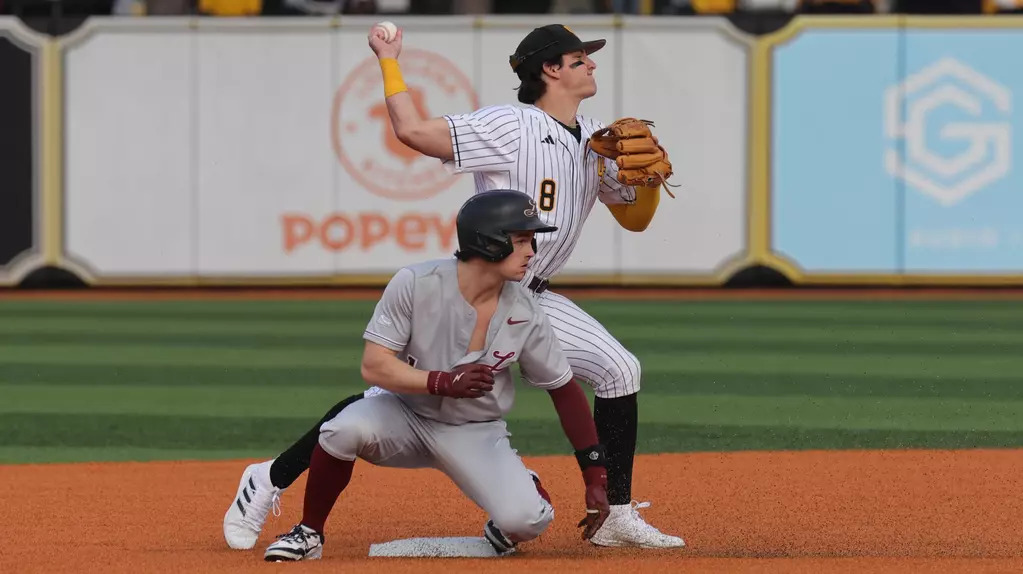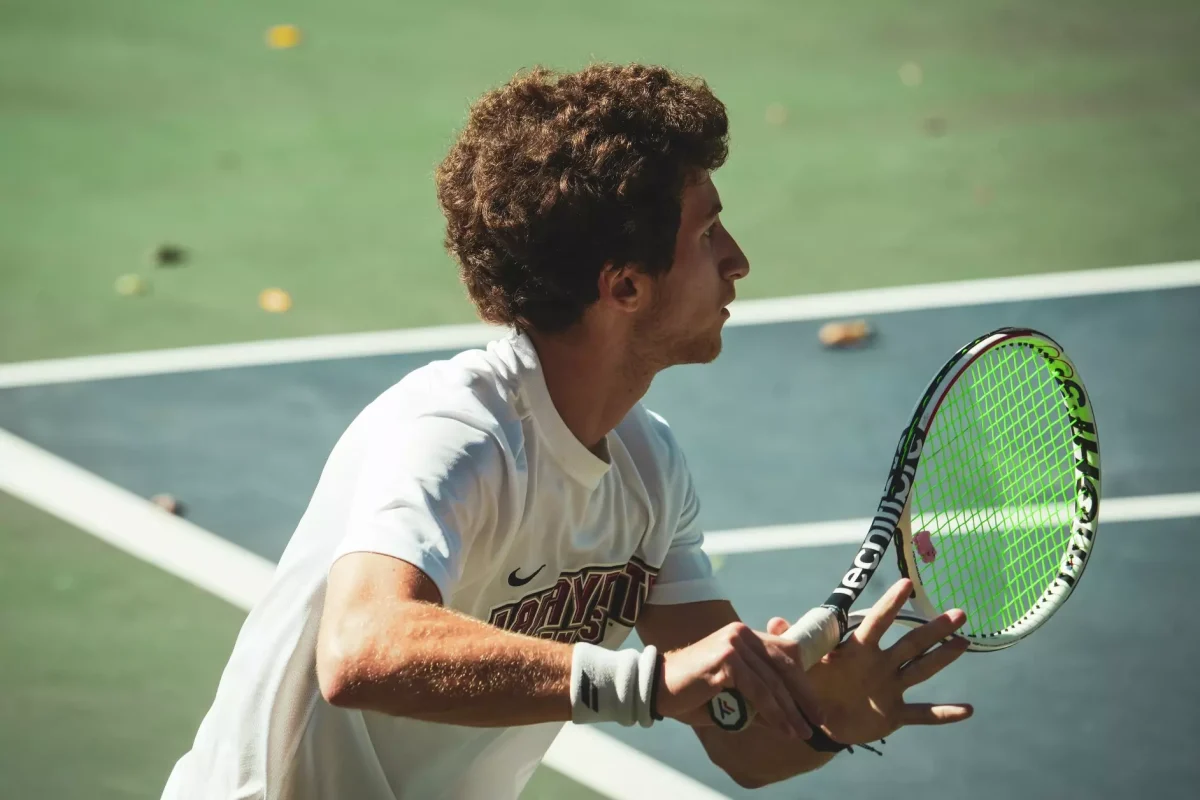The Lafayette chapter of Athlete Ally has existed for about five years, but the group hasn’t made much of a splash in the world of Leopard athletics, according to club president and senior Theresa Delahanty and incoming co-presidents junior Jenn DeLongis and sophomore Eva Kaplan. With a shift in funding support and new ideas, these leaders are looking to make a bigger impact.
Athlete Ally, whose mission is “to end the rampant homophobia and transphobia in sport” and advocate for LGBTQ equality in athletics, is a nonprofit organization with 35 campus chapters, according to its website.
Hudson Taylor, a college wrestler and founder of the national Athlete Ally organization, spoke on campus in 2015 around when the Lafayette group was just beginning to form. After being handed the presidency from former Lafayette softball player Morgan Biddle ‘18, Delahanty and her softball teammates took the reins.
“It felt like people didn’t know a lot about the club, especially in the [athletic] department,” Delahanty said. “Our progress felt stagnant, so we decided to be more involved on campus. We reached out to resources on campus and that helped us out.”
One of the first steps was becoming an official club. While Athlete Ally received funding from the athletic department, they were often busy and delayed in their replies to requests, said Delahanty. Kaplan, DeLongis and Delahanty said they had ideas, but they will be more doable since they can use club funding.
Athletic department spokesperson Scott Morse said that the athletic department has made an effort to support Athlete Ally “in tremendous ways,” and that he was not aware of any delays in funding.
“Next year during preseason we want to have a designated Athlete Ally day with each team and with the coaches,” Kaplan said. “Also having more representatives from each team. One representative from each team is the goal.”
Kaplan added that they want to “amp up” each Athlete Ally game more, including a halftime presentation and building on the understanding that each player on the field is devoted to being an ally.
“A lot of people know it’s the Athlete Ally game, but they don’t see the meaning in it,” Delahanty said.
Although many in the Athletic Department are aware of the club, the field hockey team provides most of their support at this point.
“I don’t think it’s people not supporting the mission, I think people have a lot of obligations,” Delahanty said. “The LGBTQ community is something that’s not talked about in athletics. We don’t have a hostile community. It’s just that people aren’t talking about it.”
As Delahanty, DeLongis, and Kaplan continue to grow the club, they discussed the possibility of Safe Zone training for each athlete ahead of their season. They are also reaching out to other existing clubs to bridge a connection between athletics and groups not associated with athletics.
“Safe Zone trainings are opportunities to learn about LGBTQ+ identities, gender and sexuality, and examine prejudice, assumptions, and privilege,” according to the Safe Zone website. Stickers are often rewarded to those who complete the training to demonstrate that they are allies to the LGBTQ community, the site says.
“You don’t have to be an athlete to be an Athlete Ally,” Delahanty said.
Delahanty said there’s no one specifically they know this club is helping, but statistically there are current and future athletes that will feel more welcome if Athlete Ally sees success.
“Even though you’re coming in to play a sport, having inclusive space is a huge reason to be a part of Lafayette in general,” DeLongis said.
Next for the club is a banner presentation at the Kirchoff Challenge, an annual fundraiser for ALS research, held between Fisher Stadium and Kirby Sports Center.
The club is meeting regularly and looking to recruit more members as they try to implement some of their goals for the next season of Lafayette sports.
“Because so much of our lives are in athletics, it’s a space we know well and it’s a space we know we can improve,” Kaplan said.




